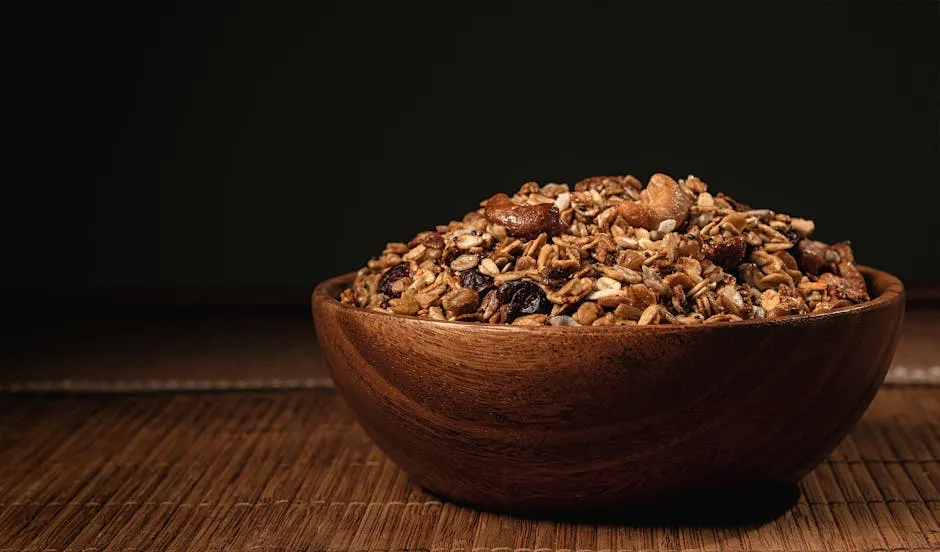
Why Am I Farting So Much? Understanding Excessive Flatulence
Introduction
Farting is a common and natural process. Most people pass gas around 10 to 20 times a day. If you find yourself doing it more often, you might be wondering why. Understanding the reasons behind excessive flatulence is crucial for managing it effectively.
Summary and Overview
Flatulence occurs when gas builds up in the digestive system and is expelled. It plays a role in digestion, helping to release air and gas produced during the breakdown of food. On average, farting between 10 to 20 times daily is normal. However, excessive farting, defined as more than 20 times a day, may signal underlying issues.
Many misconceptions exist about farting. Some believe that farting often indicates poor digestion, but this isn’t always the case. Factors like diet, lifestyle, and health conditions can significantly influence gas production. Common causes of excessive flatulence include high-fiber diets, food intolerances, and digestive disorders. Keeping track of your dietary habits and symptoms can help identify triggers.

If you’re looking for a little extra help with digestion, consider trying Beano Dietary Supplement. It can help break down complex carbohydrates in foods like beans and vegetables, potentially reducing gas production. After all, nobody wants to be the person who clears the room!
Causes of Excessive Flatulence
Dietary Factors
Your diet plays a major role in gas production. Certain foods are notorious for causing more gas. Beans, lentils, and cruciferous vegetables like broccoli and cabbage are common culprits. These foods contain complex carbohydrates that are hard to digest, leading to fermentation in the gut.
Dairy products can also be problematic. Many people have lactose intolerance, meaning they struggle to digest lactose found in milk and cheese. This can result in gas, bloating, and discomfort after consuming dairy. If you’re one of those folks, consider keeping some Lactaid Lactose Intolerance Caplets handy. They can help ease the discomfort of dairy consumption, allowing you to indulge a little without the consequences.
Food intolerances, such as gluten sensitivity, can lead to excessive gas as well. When the body can’t properly digest specific foods, it produces more gas during the digestive process. It’s wise to keep a food diary to identify which foods may be triggering your symptoms. This way, you can make informed dietary adjustments to help manage excessive flatulence.

Swallowed Air
Swallowed air, or aerophagia, can lead to increased gas. This happens when you unintentionally take in air while eating, drinking, or even talking. Many people swallow air without realizing it, especially when they’re anxious or eat too quickly.
Common behaviors contributing to this issue include eating too fast, drinking through straws, or chewing gum. Even laughing can cause you to gulp down air. Being mindful of these habits can help reduce the amount of air you swallow, leading to less gas overall.

Digestive Disorders
Several digestive disorders can contribute to excessive flatulence. Irritable Bowel Syndrome (IBS) is one of the most common, causing bloating, cramping, and irregular bowel movements. Celiac disease, an autoimmune condition triggered by gluten, can also lead to significant gas production, along with diarrhea and abdominal pain.
Inflammatory Bowel Disease (IBD), which includes Crohn’s disease and ulcerative colitis, often results in gas and discomfort. Symptoms associated with these conditions include persistent bloating, abdominal pain, and changes in bowel habits. If you suspect a digestive disorder, consulting a healthcare professional is crucial for proper diagnosis and management.

Lifestyle Factors
Stress and anxiety can significantly worsen gas production. When you’re stressed, you might swallow more air, leading to increased bloating and discomfort. Moreover, stress can exacerbate symptoms of conditions like IBS.
Physical inactivity also plays a role in digestion. A lack of movement can slow down your digestive system, causing gas buildup. Incorporating regular exercise into your routine can help improve digestion and reduce gas production. In fact, a Yoga Mat for Home Practice can be an excellent addition to your routine, making it easier to get moving and relieve stress.

Foods That Cause Excess Gas
High-Fiber Foods
High-fiber foods are essential for a healthy diet, but they can also cause gas. While fiber promotes digestion, certain high-fiber foods may lead to excess gas. Beans, lentils, and cruciferous vegetables like broccoli and cabbage are well-known for their gas-producing qualities.
These foods contain complex carbohydrates and fibers that are hard to digest, leading to fermentation in the gut. While beneficial, it’s important to introduce these foods gradually and monitor your body’s response to avoid discomfort. If you need some recipe ideas, a High-Fiber Cookbook could be just what you need!

Sugary and Carbonated Foods
Are you a fan of sugary snacks or fizzy drinks? If so, these may be contributing to your gas troubles. Sugar alcohols, commonly found in sugar-free products, can create significant gas in your gut. They are not fully absorbed, leading to fermentation and bloating.
Carbonated beverages like soda, beer, and sparkling water can also introduce extra air into your digestive system. When bubbles burst in your stomach, they can lead to increased flatulence. To reduce gas, consider cutting back on these items. Limit your intake of soda, energy drinks, and sugar-free snacks containing xylitol or sorbitol. Or, if you enjoy making your own fizzy drinks, check out a Carbonated Drink Maker for healthier options!

Prevention Strategies
Dietary Adjustments
Keeping a food diary can be a game changer. Track what you eat and note any gas symptoms afterward. This will help you identify specific trigger foods. Gradual changes to your diet are more effective than sudden shifts. Slowly eliminate potential culprits, like beans or dairy, to see how your body reacts. Small, manageable adjustments can lead to significant improvements in your comfort levels.

Eating Habits
How you eat matters just as much as what you eat. Eating slowly can prevent you from swallowing excess air. Aim for smaller portions to ease the workload on your digestive system. Chewing thoroughly can also help. Consider avoiding carbonated drinks and chewing gum, as both can introduce more air into your gut. These simple habits can make a big difference in reducing gas.

Lifestyle Changes
Regular exercise is key for improving digestion. Aim for at least 30 minutes of activity a few times a week. Physical movement helps food move through your digestive tract and can reduce gas buildup. Additionally, managing stress is crucial. Techniques like yoga, meditation, or deep-breathing exercises can help calm your mind and body. A relaxed state can lead to a healthier digestive process, minimizing gas production. To boost your relaxation, consider using a Meditation Cushion to enhance your practice!

When to Consult a Doctor
If you experience excessive farting, certain symptoms may indicate the need for medical attention. Severe abdominal pain, persistent bloating, or drastic changes in bowel habits should not be ignored. Additionally, if you notice blood in your stool or unexplained weight loss, it’s time to consult a healthcare provider. These symptoms can signal underlying digestive disorders that require professional evaluation.
Your doctor may conduct various diagnostic tests to determine the cause. This can include blood tests, imaging studies, or a breath test to check for conditions like lactose intolerance or bacterial overgrowth. Early intervention can lead to better management of your symptoms.

Conclusion
Excessive farting can stem from various causes, including diet and digestive disorders. Monitoring your symptoms is essential for identifying triggers. If you notice significant changes or discomfort, don’t hesitate to reach out to a healthcare provider. Remember, while passing gas is a natural process, understanding its causes can help you manage it effectively. Making simple lifestyle adjustments can greatly improve your comfort.

FAQs
What is considered excessive farting?
Excessive farting typically means passing gas more than 20 times daily, especially if accompanied by discomfort, bloating, or changes in bowel habits.
Can stress cause increased flatulence?
Yes, stress can worsen digestion and lead to increased gas production. It often causes people to swallow more air, which adds to the gas in the digestive system.
What foods should I avoid if I have excessive gas?
If you’re experiencing excessive gas, certain foods can significantly contribute to the problem. Here’s a list of common offenders to consider limiting or avoiding: 1. Beans and Legumes: These are famous for causing gas due to their high fiber content and complex carbohydrates. Soaking them before cooking can help. 2. Dairy Products: Many people have lactose intolerance. This can lead to gas, bloating, and discomfort when consuming milk, cheese, and yogurt. 3. Cruciferous Vegetables: Broccoli, cauliflower, and cabbage are nutritious but can produce gas when digested. 4. Onions and Garlic: These flavorful additions can also lead to increased gas production. 5. Carbonated Drinks: Sodas and sparkling waters introduce extra air into your digestive system, contributing to gas buildup. 6. Sugar Alcohols: Found in sugar-free products, these can lead to gas because they’re not fully absorbed in the gut. 7. Wheat and Whole Grains: For some, gluten can be problematic, leading to excessive gas and discomfort. 8. Certain Fruits: Apples, pears, and peaches contain sugars that can ferment in your gut, leading to gas. By keeping track of your dietary intake, you can identify which foods affect you the most. This knowledge enables you to make informed choices to manage gas effectively.
When should I see a doctor for farting issues?
While farting is a normal bodily function, some symptoms may indicate a need for professional evaluation. Consult a healthcare provider if you experience any of the following: – Severe Abdominal Pain: Intense pain that doesn’t subside could signal a serious issue. – Persistent Bloating: If bloating continues despite dietary adjustments, it’s worth discussing with a doctor. – Changes in Bowel Habits: Sudden diarrhea or constipation that lasts more than a few days should be addressed. – Blood in Stool: This is a critical sign that warrants immediate medical attention. – Unexplained Weight Loss: Losing weight without trying can be concerning and may indicate an underlying problem. – Nausea or Vomiting: Ongoing nausea, especially if it’s accompanied by other symptoms, should be evaluated. These signs may suggest digestive disorders or other health issues. Early intervention can lead to better outcomes, making it essential to consult a healthcare professional when necessary.
Is it normal for farting to change with age?
Yes, farting patterns can change as you age. Here’s how: 1. Digestive Changes: As we age, our digestive systems may become less efficient. This can lead to increased gas production. 2. Dietary Shifts: Older adults often alter their diets for health reasons. Introducing new foods can change gas patterns. 3. Decreased Gut Motility: Aging can slow down the digestive process, leading to more gas buildup and discomfort. 4. Health Conditions: Older adults may develop conditions like IBS or lactose intolerance, which can increase gas. 5. Medication Effects: Many older adults take medications that can affect gut health and contribute to gas. While farting is a natural process, changes in frequency or odor may require attention. Monitoring your body’s signals can help you manage any discomfort effectively.
Please let us know what you think about our content by leaving a comment down below!
Thank you for reading till here 🙂 And if you’re looking to spice up your meals, why not try a Spiralizer for Vegetables? It’s a fun way to add more veggies to your diet without the gas!
All images from Pexels




